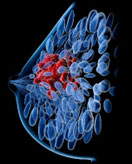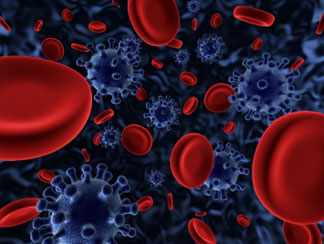In recent years, the field of Pharma and Life Sciences has witnessed remarkable advancements, particularly in breast cancer research and treatment. Breast cancer, one of the most prevalent cancers affecting women globally, has prompted intensive research and innovation to improve diagnostics, treatment options, and overall patient outcomes. This article explores the significant contributions of Pharma and Life Sciences in the context of breast cancer, emphasizing the pivotal role these advancements play in promoting health and wellness.
DIAGNOSTICS AND EARLY DETECTION
Pharmaceutical and Life Sciences companies have been at the forefront of developing cutting-edge diagnostic tools for the early detection of breast cancer. Early diagnosis is a critical factor in successful treatment outcomes, and advancements in imaging technologies have revolutionized the way healthcare professionals identify and assess breast cancer.
 Imaging: Innovations like 3D mammography, molecular breast imaging, and MRI enhance breast cancer detection precision and accuracy.
Imaging: Innovations like 3D mammography, molecular breast imaging, and MRI enhance breast cancer detection precision and accuracy.
Precision Medicine: A significant stride in breast cancer research is the shift towards precision medicine, tailoring treatments based on unique genetic makeup. Advances in genomics identify specific genetic mutations, enabling targeted therapies for successful outcomes with fewer side effects.
 Liquid Biopsy: Critical for early detection, liquid biopsies analyze circulating tumor DNA, RNA, and proteins non-invasively. Revolutionizing diagnostics, they detect genetic alterations associated with breast cancer earlier, allowing timely interventions and personalized treatment plans.
Liquid Biopsy: Critical for early detection, liquid biopsies analyze circulating tumor DNA, RNA, and proteins non-invasively. Revolutionizing diagnostics, they detect genetic alterations associated with breast cancer earlier, allowing timely interventions and personalized treatment plans.
Tech Advancements: The integration of AI and machine learning in breast cancer diagnostics is a game-changer. AI algorithms can analyze vast amounts of imaging data, aiding in the early identification of potential abnormalities and reducing the risk of false negatives thereby improving screening program efficiency for more personalized and timely interventions.
Clinical Trials: Collaborative efforts between pharmaceutical companies, research institutions, and healthcare providers, particularly through clinical trials, play a pivotal role in testing and evaluating new therapies and treatment modalities in breast cancer research.
TARGETED THERAPIES AND PERSONALIZED MEDICINE
Advanced targeted therapies, like HER2-targeted drugs and hormone receptor blockers, address the molecular characteristics of individual breast cancers. Unlike broad treatments such as chemotherapy, these therapies minimize collateral damage to healthy cells, reducing severe side effects. Personalized medicine in breast cancer treatment analyzes a patient’s tumor’s unique genetic makeup. Tailoring treatment plans to target specific mutations driving cancer growth enhances efficacy and reduces the risk of adverse reactions, fostering a patient-centric and holistic approach to cancer care.

IMMUNOTHERAPY AND IMMUNE SYSTEM’S ROLE
Recent breakthroughs in breast cancer immunotherapy stimulate the body’s immune system to recognize and attack cancer cells. Though breast cancer has been less responsive to immunotherapy, ongoing research aims to enhance its effectiveness. Harnessing the immune system’s ability for long-term cancer control, therapies like checkpoint inhibitors and CAR-T cell therapies are reshaping breast cancer treatment. Evolving therapies seek to enhance the body’s natural defenses and improve long-term prognoses for patients.
PATIENT SUPPORT AND HOLISTIC WELLBEING
 Pharma and Life Sciences companies recognize the need for holistic patient care in breast cancer treatment. Beyond medications, there’s a growing focus on addressing emotional, psychological, and social aspects of a patient’s journey. Collaborative patient support programs provide counseling, educational resources, and community engagement to empower patients and families, promoting mental and emotional well-being. Additionally, the integration of digital health solutions, like mobile apps and wearable devices, enables continuous health monitoring. These tools empower patients to actively engage in their care, fostering a sense of control and a proactive approach to health and wellness.
Pharma and Life Sciences companies recognize the need for holistic patient care in breast cancer treatment. Beyond medications, there’s a growing focus on addressing emotional, psychological, and social aspects of a patient’s journey. Collaborative patient support programs provide counseling, educational resources, and community engagement to empower patients and families, promoting mental and emotional well-being. Additionally, the integration of digital health solutions, like mobile apps and wearable devices, enables continuous health monitoring. These tools empower patients to actively engage in their care, fostering a sense of control and a proactive approach to health and wellness.
MY REFLECTION AND EXPERIENCE
 As a survivor of bilateral breast cancer for 16 years, I underwent numerous imaging tests for diagnosis, detection, complications, and recovery as my breasts went under construction. Researching the latest advancements, I ensured the least invasive approach to surgery and recovery, utilizing genomics and genetic mutation testing early on. I advocate for mandatory coverage of BRCA and ONCO DX research tests by insurance for all cancer patients, considering the decreasing costs over time.
As a survivor of bilateral breast cancer for 16 years, I underwent numerous imaging tests for diagnosis, detection, complications, and recovery as my breasts went under construction. Researching the latest advancements, I ensured the least invasive approach to surgery and recovery, utilizing genomics and genetic mutation testing early on. I advocate for mandatory coverage of BRCA and ONCO DX research tests by insurance for all cancer patients, considering the decreasing costs over time.
Since my 2007 diagnosis I got involved with the Susan G. Komen organization and became a Board of Trustee. Then, I became an advocate and collaborator with the New York Presbyterian/Columbia University Hospital Department of Physician and Surgery, Breast Care Management. Upskilling my knowledge about advancements in breast healthcare treatments, clinical trials, market research, and innovative surgical approaches. Keeping abreast of emerging trends with leading organizations is vital to me as a survivor and post-surgical fashion designer, reflecting unparalleled progress through cutting-edge technology and research methodologies.
While my surgical recovery from breast cancer took a unique path, I believe in the efficacy of my chosen targeted therapy, post-radiation using Tamoxifen, despite its significant impact on my immunological system and resulting in over 80 food and drug allergies to date. Remaining cancer-free without relapse, I wouldn’t alter my chosen treatment, as it has provided a positive quality of life, fueled by hope and limitless potential as a survivor.
Throughout my treatment, local hospitals and social workers provided essential emotional support and counseling therapy. Today, diverse programs are readily available from diagnosis through recovery, playing a crucial role in maintaining a positive approach to overall health and wellness for survivors.
CONCLUSION
The intersection of Pharma and Life Sciences in breast cancer research is transforming healthcare, fostering optimism and evolving our approach to cancer care. Progress, ranging from early detection and advanced diagnostics to targeted therapies and immunotherapy, underscores the industry’s steadfast commitment to enhancing patient outcomes. Moreover, the adoption of a comprehensive patient support model and the integration of personalized medicine signify a shift toward more patient-centered healthcare.
As Pharma and Life Sciences continue to drive innovation in breast cancer research, the ripple effects extend beyond the realm of cancer care, influencing our broader understanding of health and wellness. With ongoing research and collaboration, the future holds even greater promise for individuals affected by breast cancer, offering a path to improved treatments, enhanced quality of life, and, ultimately, a world where breast cancer is more effectively managed and, one day, eradicated.
Learn more about Jean Criss at https://jeancrissmedia.com or https://linkedin.com/in/jean-criss



















